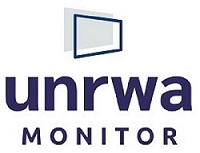Two scholars have recently published an analysis of school textbooks. One scholar is Prof. Avner Ben-Amos of Tel Aviv University’s School of Education, and the second is Dr. Arnon Groiss (Gross), whose work was commissioned by the Center for Near East Policy Research and published by the Meir Amit Intelligence and Terrorism Information Center.
Ben-Amos explores how Israeli textbooks and pre-college matriculation exams address the Israeli occupation of the Palestinians. In his research, he finds that the occupation is rarely a topic in schools. He names this phenomenon, an “interpretive denial,” that is, “the Jewish control and the Palestinians’ inferior status appear as a natural, self-evident situation that one doesn’t have to think about.” For example, Ben-Amos looked at textbooks for middle school and high school in the state and state religious schools, to see how they treat the ramifications of the 1967 Six-Day War. He examined history, geography, and civics books, as well as informal education like workshops and tours for high school students. According to Ben-Amos, the last two decades have seen a limited recognition of the occupation, albeit with a denial of its repercussions, which seems to be intentional. “If the education chiefs ignore the research literature, if the information on events can’t reach the classrooms, we’re dealing with an attempt to hide and silence,” he said.
According to Ben-Amos, the Israeli maps in geography textbooks show the area between the Mediterranean Sea and the Jordan River with a few brown stains and dots to mark “Area A,” which is governed by the Palestinian Authority. However, the textbook offers “no explanation for the various areas ruled by the authority.” The exams also ignore the Green Line and the Palestinian people in a question that refers to the Jewish population in “Judea and Samaria.” According to Ben-Amos, “It’s not simplistic denial, claiming that this reality doesn’t exist. It’s more complex denial, based on the fact that education officials know the reality in the territories but are unwilling or unable to admit it… The approach conveyed to the students is that there’s no fundamental difference between what happens beyond the Green Line and the reality within the line; that it’s the natural historical, geographic continuation.”
Ben-Amos concludes that since the Education Ministry must first approve the textbooks, the textbooks either ignore the occupation or attempt to normalize it, which is stemming from self-censorship. As clear guidelines are absent, “nobody wants to be blacklisted and denounced, which was the fate of teachers and publishers who tried to convey a more nuanced message than the one permitted by the Education Ministry.”
- Read full report in PDF, click here.








